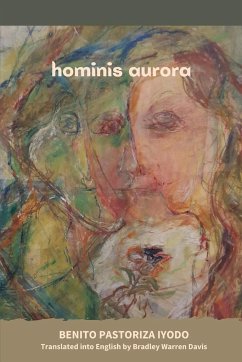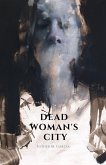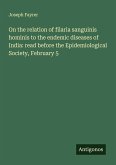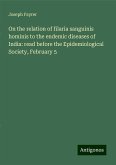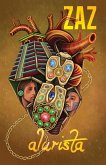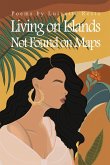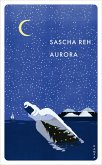Hominis Aurora is a collection of poems in three parts (sacred numerology of the beginning, evolution and end or the triangle as exemplification of the birth of knowledge) manifested in the metaphoric subtitles of Tempus, Ritualis and Communitas. The book embarks on a journey toward the telluric and the mystical, specifically within the transition between the prehistoric eras known as the Paleolithic and Neolithic periods. This time initiates the beginning of everything: the creation of language, the aura of thought, poetry in its ethereal stage, ferocious individualism, the formation of social groups, the beginning of human mythology, artistic expression, bellicose conflicts, the emergence of agriculture, immigration, man vs. nature, the seeds of ingenuity, and man facing his own existential reality and that of all others. Since no written history exists from which to construct that poetic world of human genesis, one must rely on investigation of the disciplines of archeology, fine arts and anthropology, These disciplines, especially art, were crucial in the elaboration of the book; which, to a great extent, is a love letter to the fine arts, as stated in the epigraph of the English poet William Wordsworth. Hominis aurora es un poemario en tres partes (numerología sacra de comienzo, evolución y final o el triángulo como ejemplificación del nacimiento del conocimiento) manifestado en los subtítulos metafóricos de Tempus, Ritualis y Communitas. El libro emprende un viaje hacia lo telúrico y lo místico, específicamente dentro de la transición de las eras de la prehistoria conocidas como el periodo paleolítico y neolítico. Allí se da el comienzo a todo: creación de la lengua, el aura del pensamiento, la poesía en su estado etéreo, el individualismo aferrador, formación de los grupos sociales, inicio de la mitología humana, la expresión artística, los conflictos bélicos, el surgimiento de la agricultura, la inmigración, hombre versus naturaleza, brote del ingenio y la realidad existencial del hombre ante sí mismo y los demás. Al no existir una historia escrita para construir aquel mundo poético de la génesis humana, se ha recurrido a investigar a través de las disciplinas de la arqueología, las artes plásticas y la antropología. Estas disciplinas, en especial el arte, fueron cruciales en la revelación del libro. El libro, en gran medida, es una carta de amor a las bellas artes, como queda expresado en el epígrafe del poeta inglés William Wordsworth
Hinweis: Dieser Artikel kann nur an eine deutsche Lieferadresse ausgeliefert werden.
Hinweis: Dieser Artikel kann nur an eine deutsche Lieferadresse ausgeliefert werden.

